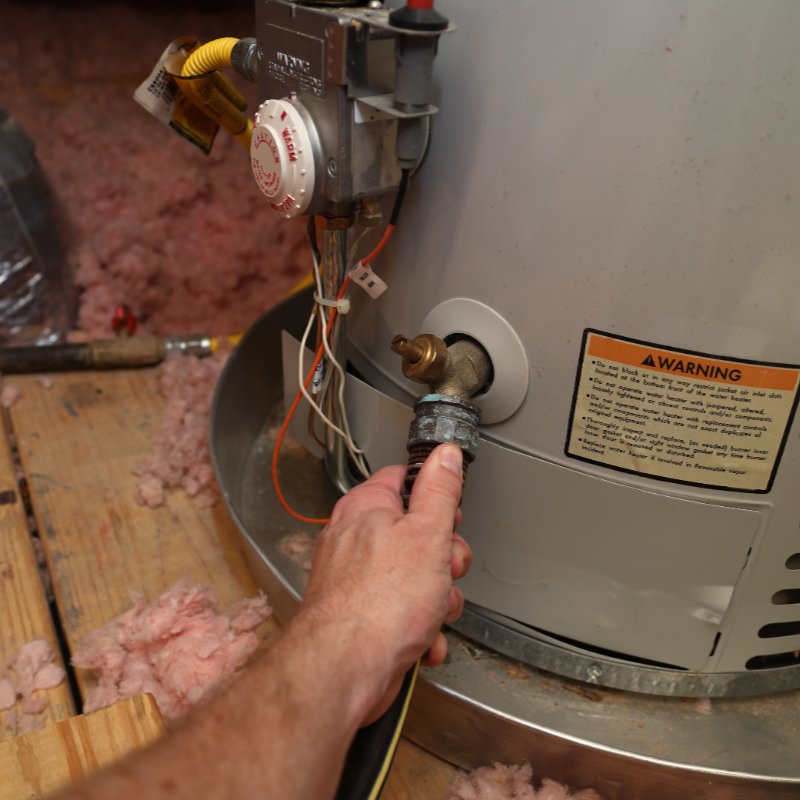How To Fix Regular Water Heater Challenges
How To Fix Regular Water Heater Challenges
Blog Article
We've noticed this article on Common Problems with Tank Water Heaters down the page on the net and thought it made perfect sense to talk about it with you in this article.

Envision starting your day without your regular hot shower. That currently sets an inadequate tone for the rest of your day.
Every residence needs a dependable hot water heater, yet just a few know exactly how to take care of one. One easy method to maintain your water heater in leading shape is to check for mistakes regularly as well as repair them as quickly as they appear.
Remember to turn off your hot water heater prior to smelling around for faults. These are the water heater faults you are probably to come across.
Water also hot or too cool
Every water heater has a thermostat that establishes exactly how warm the water obtains. If the water entering into your house is also hot despite establishing a convenient maximum temperature level, your thermostat may be damaged.
On the other hand, as well cold water may be due to a failed thermostat, a damaged circuit, or inappropriate gas circulation. For example, if you utilize a gas water heater with a damaged pilot light, you would get cold water, even if the thermostat is in ideal condition. For electric heaters, a blown fuse may be the culprit.
Insufficient hot water
Water heaters can be found in many dimensions, relying on your warm water needs. If you run out of warm water before every person has had a bathroom, your hot water heater is too little for your family size. You should take into consideration installing a larger hot water heater storage tank or going with a tankless water heater, which uses up much less space as well as is more resilient.
Strange noises
There go to the very least 5 type of sounds you can learn through a water heater, but the most common interpretation is that it's time for the hot water heater to retire.
First off, you should be familiar with the regular seems a water heater makes. An electric heating unit may seem various from a gas-powered one.
Standing out or banging noises generally imply there is a piece of sediment in your tanks, as well as it's time to clean it out. On the other hand, whistling or hissing noises may merely be your valves letting some pressure off.
Water leaks
Leaks can come from pipelines, water links, shutoffs, or in the worst-case situation, the container itself. Over time, water will certainly rust the tank, and locate its way out. If this happens, you require to replace your hot water heater asap.
Nevertheless, prior to your modification your entire container, make sure that all pipelines are in area and that each valve works flawlessly. If you still require aid identifying a leak, call your plumber.
Rust-colored water
Rust-colored water implies among your hot water heater parts is rusted. It could be the anode rod, or the storage tank itself. Your plumber will be able to identify which it is.
Lukewarm water
Regardless of how high you set the thermostat, you won't obtain any kind of warm water out of a heating unit well past its prime. A hot water heater's effectiveness might reduce with time.
You will likewise obtain lukewarm water if your pipes have a cross connection. This indicates that when you turn on a faucet, hot water from the heating system streams in alongside regular, cold water. A cross link is easy to place. If your hot water faucets still follow shutting the hot water heater shutoffs, you have a cross connection.
Discoloured Water
Corrosion is a significant cause of dirty or discoloured water. Corrosion within the water container or a stopping working anode rod might cause this discolouration. The anode pole safeguards the container from rusting on the inside and also should be examined yearly. Without a rod or a properly working anode pole, the hot water swiftly wears away inside the tank. Get in touch with a specialist water heater service technician to determine if replacing the anode rod will take care of the trouble; otherwise, change your hot water heater.
Conclusion
Ideally, your water heater can last 10 years before you need a change. However, after the 10-year mark, you may experience any of these mistakes extra regularly. At this point, you should include a brand-new water heater to your budget.
How To Troubleshoot 3 Common Water Heater Problems in Twin Cities
The Water Heater Is Leaking
A leaky cold water inlet valve A loose pipe fitting A leaky temperature and pressure relief valve A corroded anode rod A cracked tank Turn Off Your Water Heater:
Shut off your gas water heater by turning the gas valve on the unit to the “OFF” position. Shut off your electric water by switching its power off at your electrical panel. Look for a two-pole breaker labeled “water heater” and turn it to the “OFF” position. Move the ball valve connected to the water heater to be perpendicular to the piping at a 90° angle. Look for the Leak:
Depending on whether the water is coming from the tank's top or bottom, you’ll want to look for the leak in different locations.
If the leak comes from the top of the tank, carefully look for water escaping from the cold water inlet valve or loose pipe fittings. Rusted hot and cold water valves can have loose connections with the tank, with water leaking out of them.
https://mspplumbingheatingair.com/blog/how-to-troubleshoot-3-common-water-heater-problems
As a fervent reader on Common Problems with Your Home Water Heater, I thought sharing that chunk was worth the trouble. Sharing is caring. Helping others is fun. Thanks for your time spent reading it.
Book Now Report this page